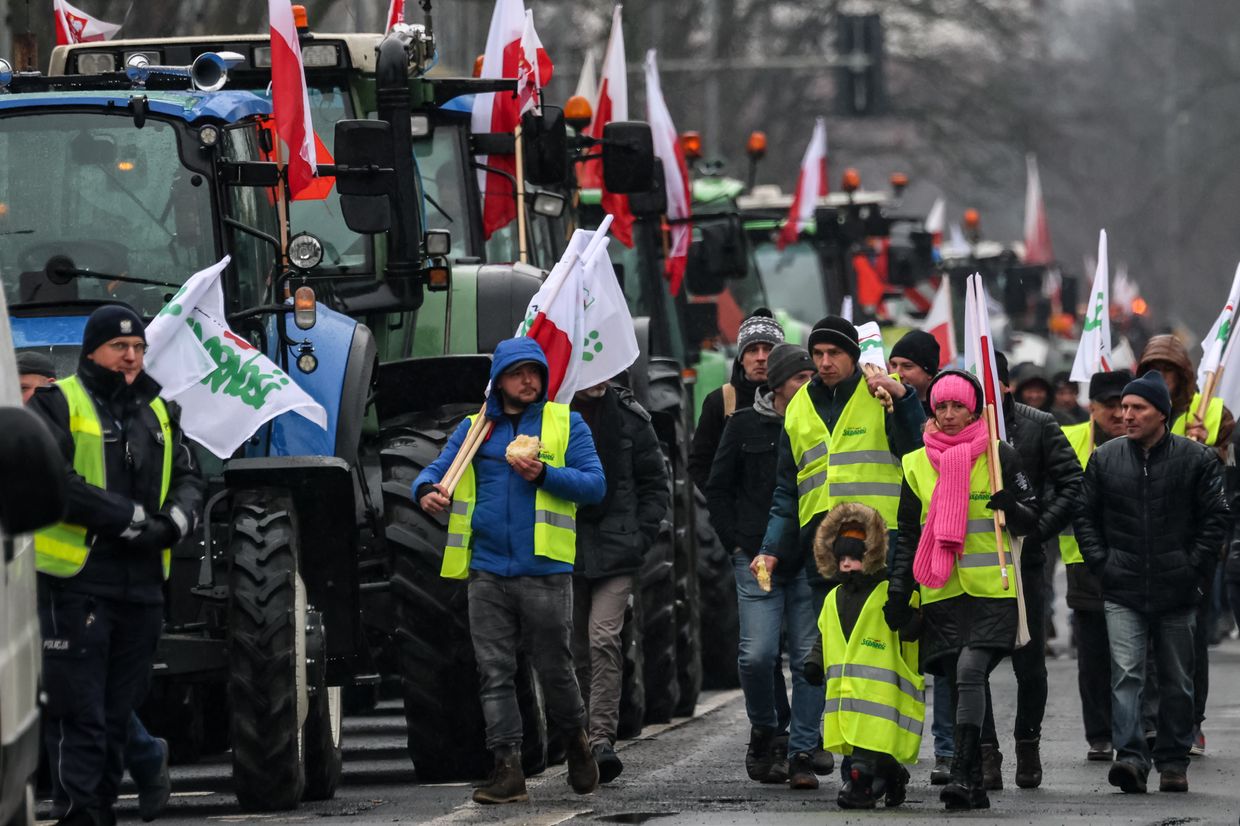Polish farmers have again taken to the border with neighboring Ukraine in their new month-long strike against EU policies and unfair competition from abroad.
The Solidarity trade union announced on Feb. 9 that it would begin blocking roads and border crossings with Ukraine until March 10. The group then announced on Feb. 13 that it would block all border crossings with Ukraine on Feb. 20, escalating tensions further.
Farmers across Europe have been protesting what they say is increased competition from abroad, particularly from Ukraine, as well as EU policies meant to fight climate change that imposes restrictions on farmers.
The Solidarity trade group has placed the blame squarely on the Polish authorities and the European Commission for what they say is inaction.
It seems like if these Polish farmers get what they want in the short term, then they’ll be so much worse off in the long term.
In regards to Ukraine: If Ukraine is not able to sell to the rest of Europe, then Ukraine is weakened, and more susceptible to being invaded by Russia. If Russia is successful in Ukraine, Poland is surely not too far from being invaded next. A Poland that’s trying to fend off a Russian invasion is less likely to have a fruitful economy than in peacetime.
In regards to climate: If the climate is fucked, then ain’t nobody growing/selling as many crops.
Both seem so shortsighted - am I missing something?
In regards to #1 Poland is a NATO country an attack on them would invoke Article 5. Russia isn’t in any condition to take on all of NATO.
Oligarchs. You’re missing oligarchs. The issue with Ukrainian agricultire is that a lot of it is a big, concentrated business with ties to Western capital on top of the traditional post-soviet oligarchy. This influences actions of both Ukrainian and EU politicians. The matters of imports or transit from Ukraine could be very well sorted out for the short term, but no one in power is really willing to do so.
In the long term Polish agriculture faces a serious challenge from Ukraine when it gets more and more integrated with the west but it’s also not so binary in terms of who floods whom with produce.





